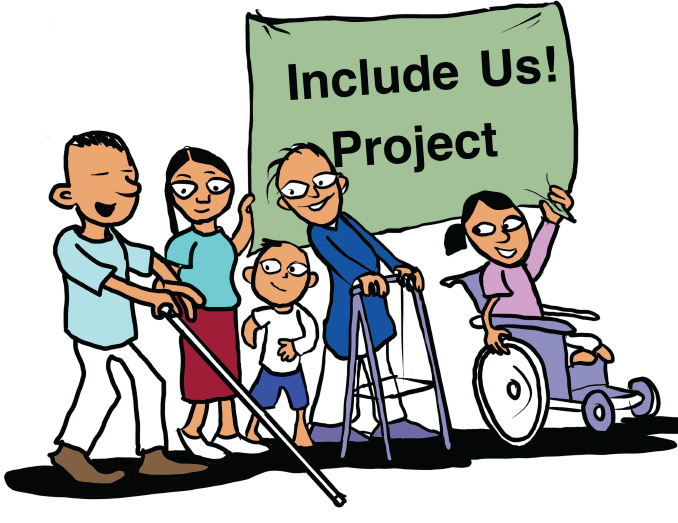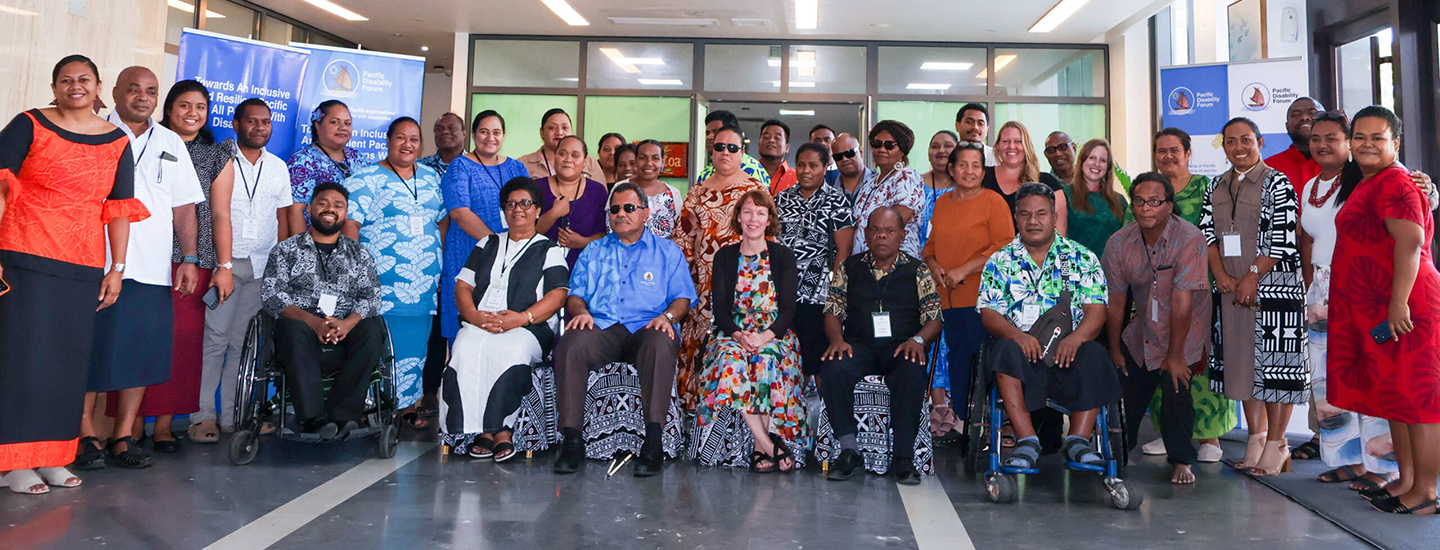Stories of Hope: Nelly
Pacific, Stories | June 25, 2024
According to the UN University WorldRiskIndex, Vanuatu is the world’s most at-risk country for natural hazards. The South Pacific nation, comprising dozens of islands, experiences a five-month tropical cyclone season each year as well as volcanic activity, floods, droughts, earthquakes and tsunamis.
People with disabilities are particularly vulnerable during disasters and emergencies. However, in Vanuatu, community leaders like Nelly are ensuring that fewer people with disabilities are left behind when crisis hits.
“I am the National Coordinator for the Vanuatu Disability Promotion and Advocacy Association (VDPA), the national disabled people’s organisation of Vanuatu, established in 1999. Its mandate is to advocate for rights and promote abilities of people with disabilities,” says Nelly, who is vision impaired.
The effectiveness of the association’s work was demonstrated in the aftermath of the Category 5 Tropical Cyclone Harold, which caused devastation throughout Vanuatu in April 2020.
“We had a disaster study which took place during Tropical Cyclone Pam in 2014 and the findings this year are totally different from 2015. We could see that the government is coming in to assist, and some partners came in to assist disability organisations to make sure we didn’t leave anyone behind during the response and recovery to Tropical Cyclone Harold. Things are slowly changing,” says Nelly.
The work of people like Nelly is supporting the development of more inclusive and resilient communities. But the practical impact of Tropical Cyclone Harold is still being felt.
“So many members of our community are without houses, most of them are living in tents. It would be very high risk for them if there is a cyclone coming soon.”
Where people with disabilities evacuate to when a disaster strikes depends on whether they reside in a town or a rural setting.
“In towns there are some places that are accessible to people with disabilities; they have lights and accessible toilets. But the challenge is that they are too crowded and someone with a mobility device cannot move around.
“With rural settings, there is no permanent building. In some rural settings most of the community will go to a cave when there is a cyclone. People with disabilities are really vulnerable at this time.”
When cyclone warnings arrive, the VDPA coordinates warnings to the 28 local disabled people’s organisations across Vanuatu. This provides challenges of its own.
“The network coverage is really bad, and for people with disability to access the message they have to climb up a hill to get the message or speak to us. It really is a challenge for our members when a cyclone is coming.”
The VDPA continues to strive to improve outcomes, partnering with the Vanuatu Society for People with Disabilities, the Vanuatu Skills Partnership and other organisations to form a disability sub-cluster to help with disaster response and recovery planning.
“We train our members on how to speak up, so they can advocate for the inclusion of people with disabilities. They could tell people, ‘If you are going to this area, don’t forget the 21 people with disabilities there.’”
Read more stories and reflections in our Prepared to Hope series.
CBM Australia acknowledges the support of the Australian Government through the Australian NGO Cooperation Program (ANCP).
https://www.cbm.org.au/stories/stories-of-hope-nelly
Related Stories

Vision for all: Why access to eye health is a precondition for inclusion
For millions of people in India, particularly those living...

Easy Read your way through our evaluation report
At CBM Australia, we recognise that accessibility is not optional – it is a...

Growing Stronger Together: Supporting OPDs across the Pacific
CBM Australia is proud to partner with Pacific Disability Forum on the Growing Stronger...
